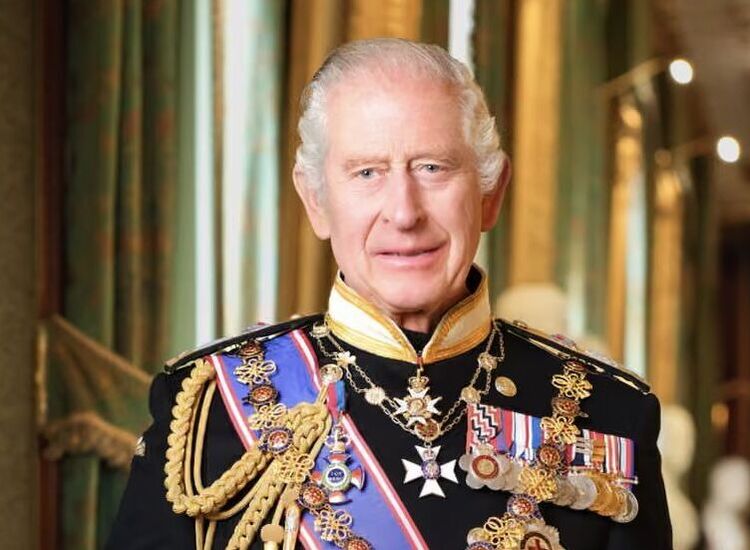The four members of We Banjo 3
By Colleen Taylor
Some bands are bigger than words. Larger than life, they jump off the page, exceed the parameters of their descriptors.
We Banjo 3 is one such band. On paper, they are a “grassroots crossover sensation” of Irish trad, bluegrass and Americana, but in person, they are much, much more.
After several years of watching We Banjo 3’s career soar from festival buzz to international fame, I finally caught them in person, live, for their home tour in Ireland. I witnessed the embodied version of what their new live album, “Roots to Rise” effects: musical catalysis. This quartet’s jubilant onstage energy makes its way into your toes, hands, and muscles, as if inciting a chemical reaction. If you don’t catch this band live soon, you’ll be missing out on one the best shows Irish music has to offer. And thankfully, the four men of We Banjo 3 are soon returning to the U.S. for the second half of their Roots to Rise tour.
By now, most Irish festival goers know We Banjo 3, so an introduction may seem superfluous. Still, the story of the band’s success is worth reviewing, mainly because they have remained humble and down to earth, honoring the roots in their music.
We Banjo 3 are two sets of brothers: Enda (banjo) and Fergal (fiddle, bodhran) Scahill, and Martin (banjo and mandolin) and David (vocals, guitar) Howley.
The band debuted in 2012 with their album “Roots of the Banjo Tree,” honing their craft and distinctive, branded blend of Irish and Americana with each subsequent release: “Gather the Good” (2014), “Live in Galway” (2015), “String Theory” (2016), “Haven” (2018) and most recently “Roots to Rise” (live album, 2019).
The list is a prolific one and traces the band’s steady crescendo of success. Just a couple weeks ago, We Banjo 3 held both the first and second place spots on the Bluegrass Billboard Charts, with “Roots to Rise” (#1) and “Haven” (#2).
As for touring, the band’s audiences have been growing at the same impressive speed as their albums’ listeners. Just last month, the band led a legendary set at the Milwaukee Irish Fest, and in Dublin, Ohio, Enda Scahill described the crowd as “monstrous.”
The band also played one of the U.S.’s biggest bluegrass festivals for the first time this year, the Grey Fox Festival in Oak Hills, New York, where they played the main stage on a Friday night and, despite the strict schedule, performed an encore at the festival director’s behest due to audience demand.
In Boston, the other Irish stronghold of the Northeast U.S., they sold out eight hundred seats. Enda Scahill expressed an immense gratitude for the band’s fans on the east coast, where the support has been unparalleled.
This impressive rise to fame in the U.S. raises the question: what makes We Banjo 3 so special, so different? The answer comes down to a simple recipe of music mixology.
Each of the four band members has a background in traditional Irish music, and collectively they hold a number of All-Ireland titles. But as We Banjo 3, their music takes a different shape: their harmonies and arrangements dance between trad and American bluegrass.
Enda Scahill explained the reasoning behind the band’s unique fusion of genres: “We wanted to make sure that an audience that isn’t completely familiar with hardcore traditional Irish music would be able to access what we’re playing, and we realized that if we mixed it with the commonalities of bluegrass, it became less serious, maybe.”
By mixing, they dilute the tradition while still maintaining its core ingredients, creating something new that can contain the foundations of both traditions without the restrictions of classical form. It allows the tunes to open up, become more accessible internationally. For Enda and his three band members, this kind of synthesis is inherently freeing - a freedom that is palpable in the energy they release onstage.
Between their most recent albums, “Haven” and “Roots to Rise,” We Banjo 3 demonstrate their breadth of their skill and creativity.
“Haven” was the band’s first album of completely original songs and tunes, which were over a year in the making. Enda Scahill described it as a democratic experience: learning to compromise with composition and arrangement, while also always remembering that “it’s really about the audience”—something the band says out loud to one another.
It’s that generosity toward their audience, the extraction of the rock star ego in favor of performative altruism that makes this band not only great but likeable too. There is simply no pretension about them, despite their accolades. They break down the distance between stage and audience, so that no barrier - real or imagined - can be felt during their performance.
This partnership between musician and audience can be heard in the band’s second live album “Roots to Rise,” which they are currently promoting with their Irish and American tours. You can hear the crowds responding with cheers to each tune change and singing along with the words to a song. Enda Scahill joked that at several points throughout the concert at Ann Arbor’s The Ark, one of the most prestigious and oldest folk venues in the country, the band had to ask the audience to subdue their excitement for the sake of the recording.
For this album, recorded three years after their first live album made in the band’s hometown of Galway, they stripped everything back. Whereas previous albums had involved cellos, brass, double bass, “Roots to Rise,” Enda Scahill explained, was about capturing the genuine sound of We Banjo 3 on tour. It is just the four of them - four instruments, one lead vocalist - but the energy of their sound nevertheless triples the might of each note and harmony.
After listening to and reviewing their albums for years, I was struck, seeing the band live, with the realization that I had been merely getting the sparknotes version of what this band can do. I already knew of their energy, their skill, their arrangements, and moving lyrics to their original songs, but what I was missing was the thing that makes this band extraordinary: their character.
By “character,” I mean their sense of humor, their movement, their natural choreography onstage as they talk to one another through their instruments. At several points throughout the gig, brothers David and Martin Howley jumped in rhythm throughout the entirety of a tune, inspiring the audience to do the same.
One thing I learned: you cannot be static at a We Banjo 3 concert. You will naturally jump to your feet, move your body to the tunes, clap your hands. In fact, the band even led the audience in a simple line dance halfway through the show. With We Banjo 3, you get star quality minus the ego, impressive skill minus the serious strictures of traditional playing, and joy without affectation.
Another thing that struck me was the sheer speed of this band’s playing. It’s one thing to hear fast notes in a recording, but to witness it live - a banjo explosion of quick-fingered strings, a rapid-fire bodhrán and fiddle- is genuinely jaw-dropping.
I came to realize why We Banjo 3 has so many super fans (many of whom were in the audience that night, singing along to each word).
Once you get a taste of their live performance, you’ll find yourself googling when and where the next closest one is. Their show is infectious, addictive glee. Between sing-alongs to “Little Liza Jane,” “Haven,” and surprise bluegrass renditions of Cher’s “Do you Believe” and “Superstition”- gimmicks that went over superbly with the audience - it is impossible to feel unhappy or even the slightest bit grumpy when We Banjo 3 are onstage.
Last, but certainly not least, the band took pause to draw awareness for Mental Health America, their partners for the Roots to Rise tour. David Howley then performed a personal and emotive version of original song “Hold On to Your Soul.”
Yet again, the range of this band came to the fore, as they proved they could be profound as well as jocular.
After all, as Enda Scahill rightly reminded me, the creative process can be one of angst. There is clearly a lot of struggle and emotion that goes into the final result of We Banjo 3’s shining, perfect production onstage.
These four musicians work hard and sacrifice themselves to make their audiences come alive, feel safe and happy in the space of We Banjo 3’s music. Still, at the end of day, they always conclude with a sense of humor.
When I asked Enda Scahill about the band’s plans for the future, he said: “Well we’d like to win a Grammy, but really we’re just hoping, like all musicians, that we don’t suck.”
The truth is quite the contrary: this band shines.
You can (must) catch We Banjo 3’s Roots to Rise Tour this Fall: they’ll be playing all over the continental U.S. including a show at University of Connecticut on October 17th. More information at webanjo3.com.









